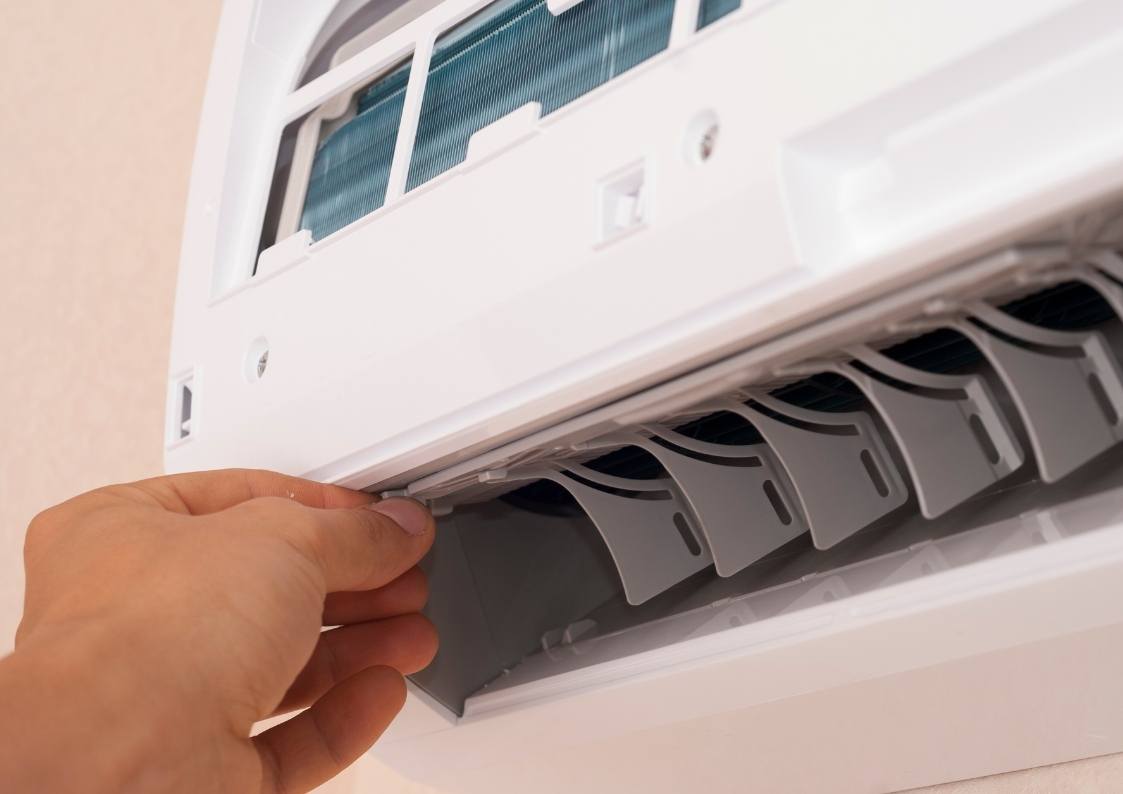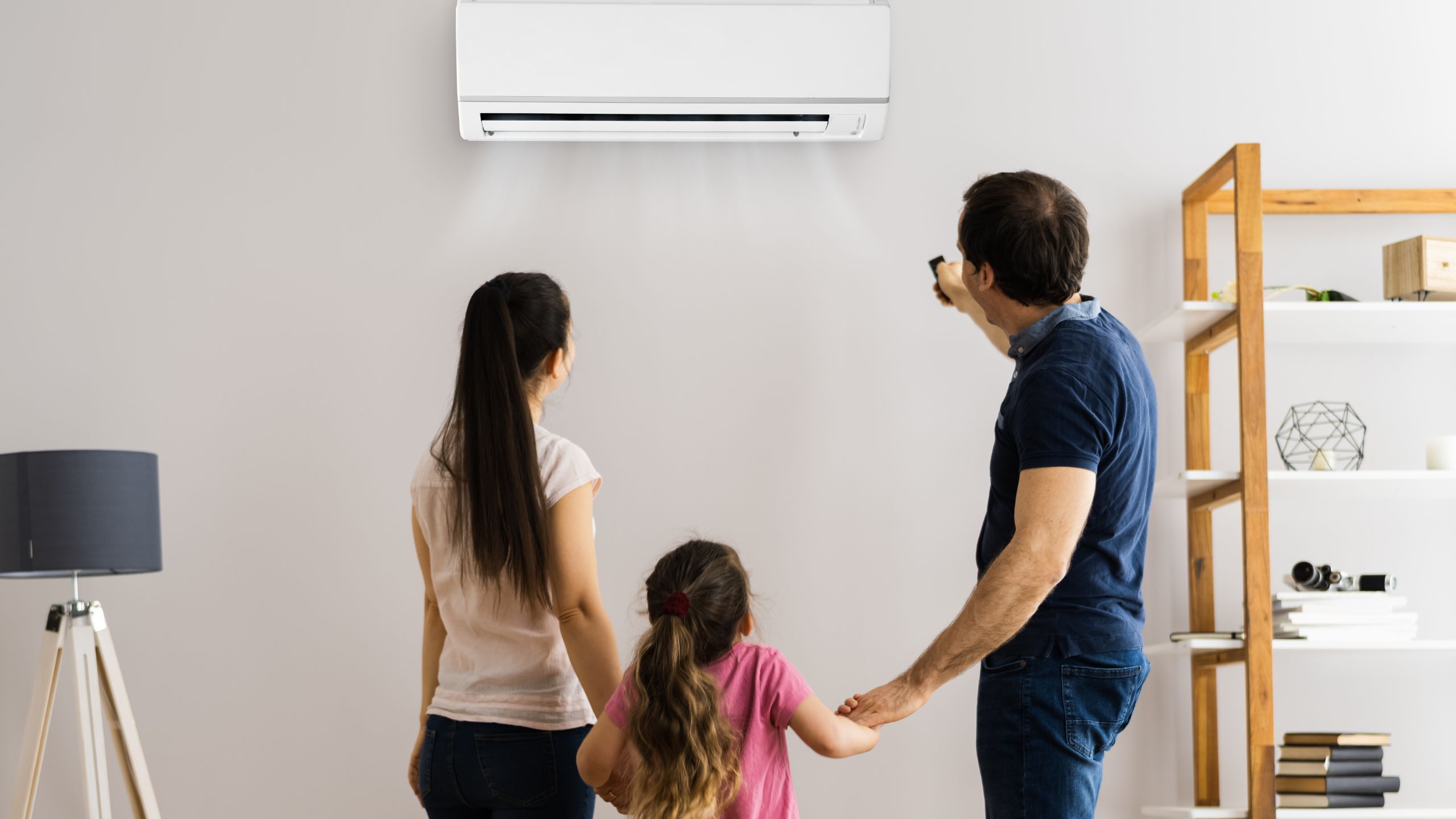From the dedicated professionals at Direct Point Heating & Cooling – Melbourne
Your air conditioner may appear to function well, but if the filters haven’t been properly maintained, you could be unwittingly losing as much as 30% of your system’s cooling efficiency. This significant drop can greatly impact your comfort during the intense heat of the Australian summer.
Clogged filters are among the primary culprits behind diminished airflow, skyrocketing energy bills, and compromised indoor air quality. While cleaning filters might seem like a simple task, it requires careful attention to detail to ensure optimal results and enhance the efficiency of your unit.
This detailed guide will provide you with precise strategies for cleaning your filters, underscore the importance of regular maintenance, and point out the warning signs indicating that it’s time to call in a professional for a thorough system cleaning.

Understanding the Critical Importance of Regular Air Filter Maintenance
The filters in your air conditioning system are specifically engineered to trap dust, allergens, and numerous other particles to prevent them from circulating in the air that you breathe. However, as time passes, these filters can become congested, raising pressure on the system, limiting airflow, and potentially leading to mould growth within the unit.
Regularly cleaning your filters is crucial for:
- Enhancing overall system efficiency
- Lowering energy consumption
- Extending the lifespan of your air conditioning unit
- Improving indoor air quality for healthier living environments
Neglecting this essential maintenance task can result in rising operational costs, a higher likelihood of system failures, and less breathable air quality for your loved ones.
Step-by-Step Instructions for Effectively Cleaning Your Air Conditioner Filter
Step 1: Prioritize Safety by Powering Down and Disconnecting Your Unit
Before you begin the cleaning process, it is vital to ensure that the power is completely turned off. For wall-mounted split systems, turn off the power at the wall and unplug the unit. If your system is hardwired, switch off the dedicated circuit at your switchboard to maintain safety throughout the cleaning process.
Step 2: Carefully Remove the Filter from Your Air Conditioning Unit
Gently open the front panel of your indoor unit. Slide the filter out carefully, taking care not to bend or damage the mesh. Keep in mind that some units may have clips or latches that need to be disengaged before you can successfully remove the filter.
Step 3: Clean the Filter with Mild Soap and Water for Optimal Results
Prepare a tub or sink filled with lukewarm water combined with a small amount of mild detergent. Allow the filter to soak for several minutes, and then use a soft brush to gently scrub away any built-up dust or grime. Avoid using harsh chemicals or aggressive scrubbing, as these may risk damaging your filter.
Step 4: Ensure Complete Dryness of the Filter Before Reinstallation
Shake off any excess water and place the filter in a well-ventilated area to air dry, avoiding direct sunlight. It is essential not to reinstall a damp filter, as moisture can encourage the growth of mould and bacteria within your air conditioning system.
Step 5: Reinsert the Filter and Verify Your Air Conditioning System’s Performance
Once the filter is thoroughly dry, carefully slide it back into its designated position, close the panel, and restore power to your system. After restarting, check that the airflow is strong and consistent, indicating that the cleaning process was successful.
Assessing if Regular DIY Cleaning Suffices for Your Air Conditioning Unit
While consistent filter cleaning is vital, it only addresses surface-level issues. Your air conditioning unit requires professional servicing to effectively eliminate:
- Accumulations of dust and mould within the fan and coils
- Obstructions in drain trays and internal components
- Efficiency losses due to dirty or damaged parts
At Direct Point Heating & Cooling, we offer comprehensive system cleaning and servicing that goes beyond basic maintenance. Our experienced technicians service both indoor and outdoor units, ensuring that every component of your system operates at peak efficiency.
Determining the Optimal Frequency for Cleaning Your Air Conditioner Filters
As a general guideline, we recommend the following cleaning schedule:
- Standard household usage: Every 2–3 months
- Households with allergies or pets: Monthly
- Commercial spaces or high-usage systems: Monthly or more frequently
Furthermore, we advise scheduling professional servicing at least once a year to ensure your system operates smoothly and to reduce the risk of costly breakdowns.

Exploring the Advantages of Professional Air Conditioner Cleaning Services
A thorough air conditioning service encompasses:
- Comprehensive cleaning of all filters, fans, coils, and drain trays
- Evaluating refrigerant levels and assessing overall system performance
- Inspecting and cleaning the outdoor compressor unit
- Identifying potential wear or failures early
Many homeowners only focus on cleaning their filters, but true performance issues often originate deeper within the system. This is where our expertise can provide a notable difference.
Schedule Your Air Conditioner Cleaning with Direct Point Today
While cleaning your filters is an important first step, ensuring long-term performance, energy efficiency, and peace of mind necessitates regular professional maintenance.
We proudly service all major cooling systems throughout Melbourne, including:
- Wall-mounted split systems
- Multi-head units
- Ducted refrigerated systems
- Evaporative cooling systems
Contact Direct Point Heating & Cooling at 1300 170 961 or email us at [email protected] to arrange your service today.
The Article: Air Conditioner Filters: Why Cleaning Them is Essential first appeared on https://writebuff.com
The Article Air Conditioner Filters: The Importance of Regular Cleaning Was Found On https://limitsofstrategy.com


No responses yet